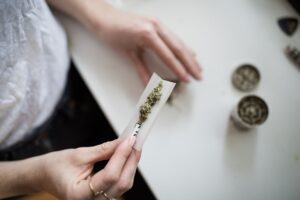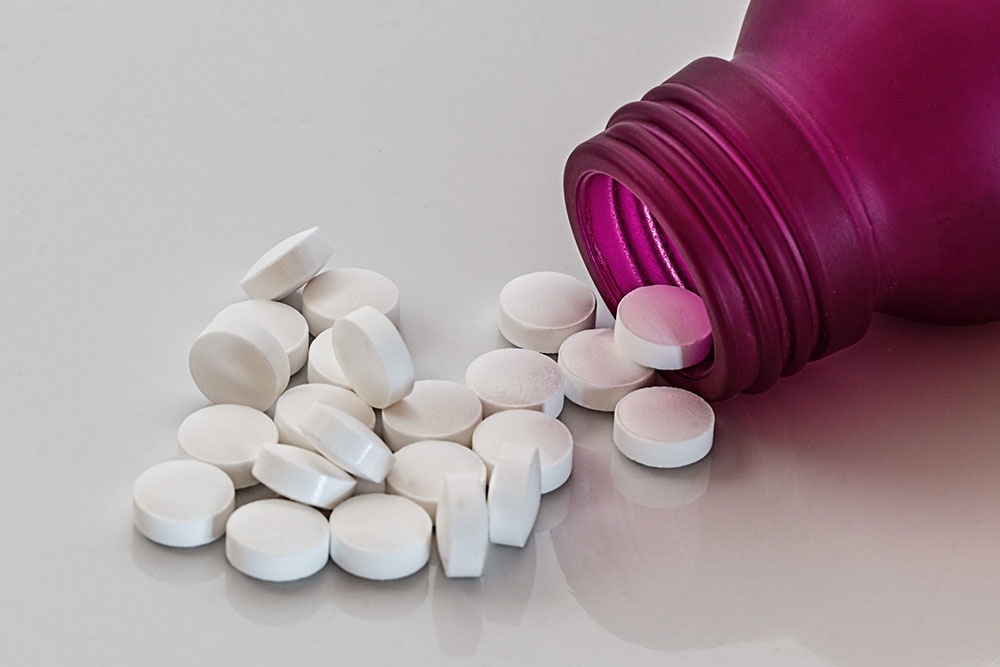While there are various drug laws that apply to every state at a federal level, there are also drug laws that are unique to the different states. In fact, every state in the country has its own set of drug laws. Some of these drug laws fall in line with the federal ones and others are unique to that specific state, such as Washington.
One of the most significant examples of this in recent years is when an individual is having a difficult time stopping marijuana use. In certain states it is legal recreationally, some states have made it legal medically, and then there are certain states where it is not legal in any capacity.
Keep reading to learn the Washington state drug laws.
What Are the Different Drug Schedules in Washington State?
Jump to Section
Drug schedules are a system that was put in place to classify various types of drugs based on a variety of factors. You might have read or heard about a drug being described as a Schedule I, Schedule II, etc. This is the drug schedule that the drug being talked about is under.
Below are the different drug schedules in Washington State and some of the drugs that fall under these categories.
Schedule I
Schedule I substances are deemed to have no legal, medical use in the state of Washington and have a high rate of abuse. Some examples of Schedule I drugs include:
- Evidence of heroin use
- LSD
- Ecstasy
- Peyote
Schedule II
Schedule II substances do have a medical use but that medical use is often restricted. These substances also have a high rate of abuse and can cause severe physical or psychological dependence. Some examples of Schedule II substances in the state of Washington include:
- An inability to stop cocaine use
- Vicodin
- Methamphetamines
- Methadone
- Involved with Fentanyl abuse
- Barbituates
- Amphetamines
- Percocet
Schedule III
A Schedule III substance is any substance that is considered to have restricted medical use much in the same way a Schedule II substance does. A Schedule III substance, however, has a lower risk of abuse and dependence than that a Schedule I or II substance.
Examples of substances that the state of Washington has deemed Schedule III include:
- Ketamine
- Anabolic steroids
- Buprenorphine
Schedule IV
Schedule IV substances have defined medical uses and are typically abused less than Schedule I, II, and III substances. They also have a lower risk of dependence and addiction than the other scheduled substances.
Schedule IV substances include:
- Xanax
- Valium
- Paxor
- Restroli
- Clamazepam
- Ativan
- Tramadol
- Ambien
Schedule V
Schedule V substances have a distinct medical use, are not typically abused, and have very little to no dependency or addiction issues associated with them, especially compared to the other schedules of substances.
An example of a Schedule V substance is over-the-counter cough medications.
What Are the Drug Paraphanalia Laws in Washington State?
Drug paraphernalia is a term that is used to refer to the equipment needed in order to use a specific drug or substance.
Examples of drug paraphernalia that is considered illegal in the state of Washington include:
- Pipes
- Scales and balances
- Hypodermic needles or syringes
- Cocaine spoons or vials
- Equipment used to test strength and purity
- Kits for processing or manufacturing illicit substances
- Chemicals used to cut or dilute illicit substances
- Mixing devices
- Packaging equipment
Possession of paraphernalia is considered a misdemeanor in the state of Washington and with it can come a penalty of up to 90 days in jail and a $1,000 fine.
Is Marijuana Considered Legal in the State of Washington?
 Marijuana is not legal in any way at the federal level in the United States. As a result, each state is responsible for its own laws when it comes to marijuana.
Marijuana is not legal in any way at the federal level in the United States. As a result, each state is responsible for its own laws when it comes to marijuana.
In the state of Washington, marijuana is legal for both medical and recreational purposes. Both recreational and medical marijuana is overseen by the Washington State Liquor and Cannabis Board. As a result, the sale and use of marijuana in the state of Washington are similar to that of alcohol and tobacco products.
Below are some of the marijuana laws that the state of Washington implements and abides by:
- Users must be 21 and older in order to purchase, consume, or possess it recreationally
- Each person is legally allowed to have one ounce of cannabis, 16 ounces of marijuana-infused product in solid form, or 72 ounces in liquid form
- Marijuana must be purchased from a state-licensed retail facility
- All marijuana must be consumed on private property
- Driving under the influence of marijuana is illegal much in the same way it is with alcohol and other substances
What Are Washington State’s DUI Laws?
Driving under the influence is illegal everywhere in the United States. However, different states have different punishments when it comes to DUI arrests. Below are the penalties for driving under the influence in the state of Washington:
- Suspended license
- Jail or prison time
- Monetary fine averaging $3,500
- An increase in insurance premiums
- Ignition interlock requirements such as an in-car breathalyzer
What Are Some of the Other Drug Laws in Washington State?
Below are some of the other drug laws that are enforced in the state of Washington and the punishment that goes along with them:
Manufacturing, Selling, Delivering a Schedule I or II Narcotic (under 2 kilograms)
- 1st offense – Imprisonment of up to 10 years and/or up to a $25,000 fine
- 2nd offense – Up to 20 years in prison and/or up to a $50,000 fine
Manufacturing, Selling, Delivering a Schedule I or II Narcotic (2+ kilograms)
- 1st offense – Up to 10 years in prison and/or a $10,000 fine for the first 2 kilograms. Up to a $50 fine will be added on for each additional gram.
- 2nd offense: Up to double the prison term and fine from the 1st offense
Manufacturing, Selling, Delivering any Schedule I, II, III, IV, or V Controlled Substance
- 1st offense – Up to 5 years in prison and/or up to a $10,000 fine
- 2nd offense – Up to 10 years in prison and/or up to a $20,000 fine
The Sale for Profit of Any Schedule I Controlled Substance
- 1st offense – Up to 5 years in prison or up to a $500,000 fine
- 2nd offense – 5 years in prison
The Sale of Heroin
- 1st offense – 2 years in prison and up to a $500,000 fine
- 2nd offense – 5 years in prison
Use of Drug Paraphernalia
- 1st offense – Minumum of 24 hours in jail or a fine of no less than $250
- 2nd offense – Fine of at least $500
Sale or Supply of Alcohol To Anyone Under the Age of 21
- 1st offense – Up to 2 months in prison and/or up to a $500 fine
- 2nd offense – Up to 6 months in prison
- 3rd+ offenses – Up to 1 year in prison
Possession of Alcohol By Anyone Under the Age of 21
- 1st offense – Up to 2 months in prison and/or up to a $500 fine
- 2nd offense – Up to 6 months in prison
- 3rd+ offenses – Up to 1 year in prison
The Purchasing or Attempted Purchasing of Alcohol By Anyone Under the Age of 21
- 1st offense – Up to 2 months in prison and/or up to a $500 fine
- 2nd offense – Up to 6 months in prison
- 3rd+ offenses – Up to 1 year in prison
For those who are over the age of 18 but under the age of 21, the punishment is a fine of no less than $250 and no fewer than 25 hours of community service.
Want More Information on Washington State Drug Laws?
 Some of the drug laws in Washington state offer the option of entering into a substance abuse treatment program instead of going to jail. Whether you are someone who is entering into court-ordered treatment or are doing so on your own, at Free by the Sea we want to help you with your substance abuse treatment needs.
Some of the drug laws in Washington state offer the option of entering into a substance abuse treatment program instead of going to jail. Whether you are someone who is entering into court-ordered treatment or are doing so on your own, at Free by the Sea we want to help you with your substance abuse treatment needs.
We offer a variety of treatment programs for substances of abuse such as:
- Alcohol
- Fentanyl
- Cocaine
- Heroin
- Benzos
- Opioids
- Stimulants
- Depressants
- Hallucinogens
We also offer detox treatment so you can undergo detox and your substance treatment at the same facility. For those suffering from a substance abuse issue as well as a mental health condition, we also have a dual diagnosis program, which includes access to depressants addiction treatment for individuals who need specialized care.
If you or someone you know is struggling with substance abuse, there is no need to continue to suffer. Contact us today to learn more about the treatment programs we offer as well as how we can get you started on the road to recovery. At Free by the Sea we want everyone who comes to our facility to go on to live a happy, healthy, and sober life.

Dr. Richard Crabbe joined our team in 2019 as our psychiatrist and medical director. He attended the University of Ghana Medical School where he became a Medical Doctor in 1977. From 1978 through 1984, he was a medical officer in the Ghana Navy and provided a variety of services from general medicine to surgeries. He received his Certificate in General Psychology from the American Board of Psychology and Neurology in 2002.

 August 29th, 2022
August 29th, 2022










